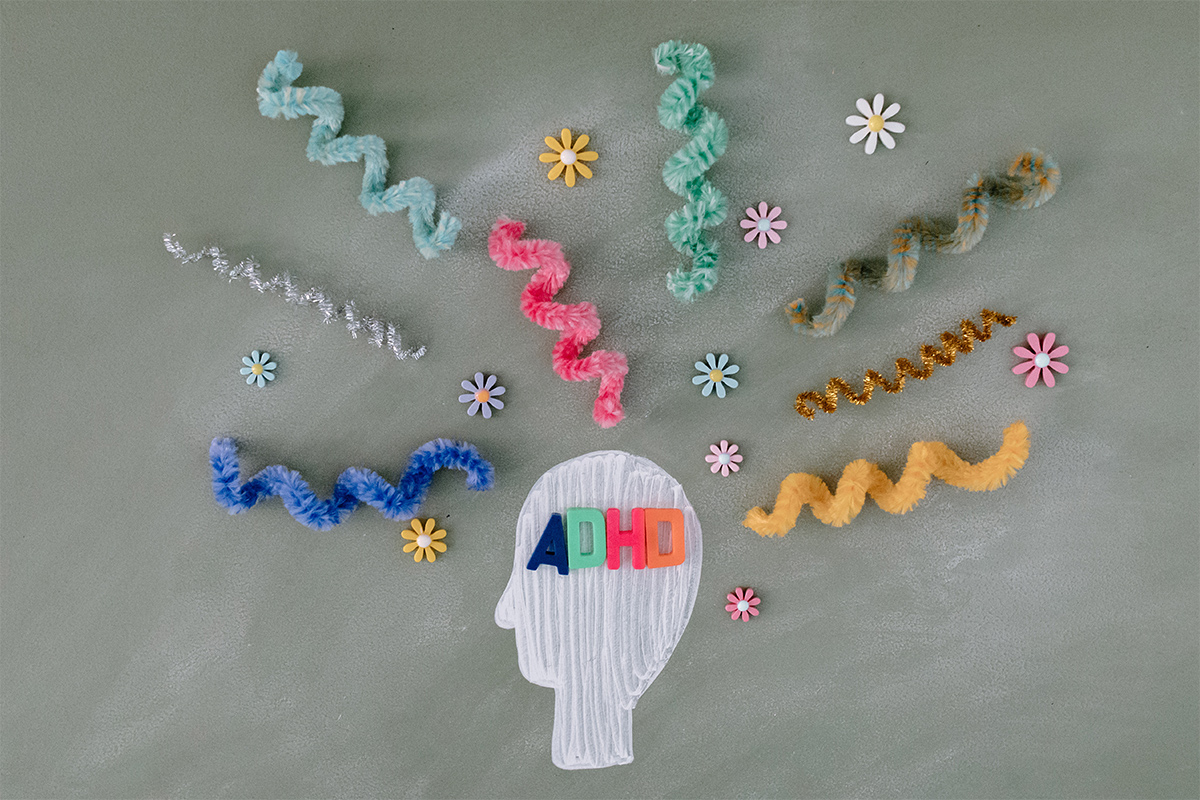When there’s a problem, it’s natural to want to solve it as quickly as possible.
So if your child’s school suggests a screen for attention deficit hyperactivity disorder (ADHD), you may first seek help from your child’s pediatrician or family doctor.
An ADHD screening by a medical professional can help rule out physical symptoms that may contribute to your child’s difficulties at school, like vision or hearing problems. As part of the screening process, the doctor may also use an ADHD screening questionnaire.
These screening questionnaires and rating scales can help provide glimpses into the types of difficulties your child is having, which can help indicate whether a more comprehensive ADHD assessment is needed.
But these screening tools are not designed or intended to be used alone or in isolation to diagnose ADHD.
Screening tools are one piece of information and are not definitive. To properly diagnose ADHD, you need a comprehensive ADHD assessment by a qualified specialist.
In this article, we explore what ADHD is, why identifying it can help your child, and the benefits of a comprehensive ADHD assessment versus a screening tool. So you understand how an ADHD evaluation can help and decide if it’s the right choice for your child.
What is ADHD?
ADHD is a neurodevelopmental disorder impacting about 5-7% of children and 4-6% of adults in Canada.
Children with ADHD may:
- Struggle to pay attention
- Be impulsive, acting without thinking about the result
- Be overly active
- Daydream a lot
- Fidget or squirm
- Talk too much
- Have trouble taking turns
- Make careless mistakes
- And more
While many children can display these types of behaviors from time to time, children with ADHD are more significantly and consistently impacted. They don’t just grow out of the behaviours.
Additionally, these symptoms cause difficulties with their daily functioning across multiple areas of their life, such as school performance, social relationships, and home life.
At school, they may get in trouble for blurting out answers, not following directions, or not staying in their seat. At home, they may struggle to complete tasks, follow directions, or “act out,” such as arguing or appearing disrespectful.
Yet, not everyone with ADHD displays the exact same symptoms. There are three different types:
- Predominantly inattentive presentation
- Predominantly hyperactive/impulsive presentation
- Combined presentation
Why is it important to diagnose ADHD in children and teens?
Sometimes parents hesitate to have their child evaluated for ADHD because they:
- May not want their child to take medications
- Don’t want their child to be labeled
- Are unsure how a diagnosis can help
Having your child undergo any assessment can initially feel stressful and lead to concerns.
But getting an accurate diagnosis, even if you don’t plan to pursue medication, can be vital to getting your child the support they need so they can thrive.
Because children with ADHD are at risk of low self-esteem, disengagement, and negative peer connections.
Additionally, if left undiagnosed, children can start falling behind at school, struggle to connect with others, and feel like they’re “stupid” or “less than” their peers. The child’s difficulties may cause adults to think the child is being intentionally “disrespectful” or lazy.
And this combination of experiences and feelings can cause children with ADHD to struggle emotionally — feeling guilty, unsuccessful, emotionally exhausted, and as if they can’t do anything right.
Why should my child have a comprehensive ADHD assessment instead of using a screening tool?
There isn’t one single medical or psychological test that can diagnose ADHD.
Instead, a variety of information is needed to gain an accurate diagnosis. Because part of the process is ruling out other potential problems that may be contributing to or causing the observed symptoms.
For instance, the professionals involved will want to rule out:
- Vision or hearing problems
- Learning disabilities
- Other possible coexisting conditions, such as anxiety, depression, or a conduct disorder
- Other conditions that mimic ADHD symptoms
A brief screening tool simply can’t provide the in-depth information needed to obtain an accurate diagnosis and complete picture of your child or teen’s functioning, challenges, and strengths.
Additionally, relying solely on a screening tool can lead to some children with ADHD being missed, and some kids being identified with ADHD incorrectly.
So why are screening tools used?
These brief tools can help schools, doctors, and parents identify whether a child may benefit from a comprehensive evaluation.
But even if the screen doesn’t indicate ADHD, you may still want to pursue a comprehensive evaluation if your child or teen is experiencing difficulties. Because sometimes the screening tools don’t pick up that child’s ADHD symptoms.
Plus, an in-depth evaluation can provide the insights, diagnosis, and recommendations needed to help your child — whether they have ADHD or not.
Benefits of a comprehensive ADHD evaluation
A thorough ADHD assessment can provide you, your child, and their teachers with:
- An accurate diagnosis that you can be confident in
- A rule out of other conditions that may mimic ADHD symptoms
- An understanding of the severity of the symptoms
- Recommendations tailored to your child’s needs so they get the right support at school, during extracurricular activities, and at home
- Identifying and getting approval for accommodations at school to support your child’s learning
- An increased understanding of your child, their strengths, and how to help them manage their ADHD symptoms
- Validating your child’s experiences and helping them better understand themselves
This self-awareness of their thinking style, emotions, and behaviours can help children and teens work through feelings they may have been believing about themselves.
For instance, ADHD symptoms can cause children and teens to get frustrated with themselves and situations. They may put themselves down, feel embarrassed, think they’re lazy, or act out if they’re struggling in school and don’t know why.
So gaining clarity on why they’re struggling can help ease these emotional difficulties. And help them understand that even though some things don’t come easily to them compared to peers, they can learn to manage symptoms so they don’t interfere with their lives.
What does a comprehensive ADHD assessment typically include?
A comprehensive ADHD evaluation focuses on obtaining a variety of information using different methods and sources to fully understand the child’s cognitive, behavioural, and emotional functioning.
This in-depth evaluation process helps the ADHD expert provide an accurate diagnosis and specific treatment recommendations that are tailored to the individual’s needs.
ADHD assessment typically includes:
- Clinical interview: The clinical psychologist will talk with you and your child to gather information on your child’s developmental history, current symptoms, family history, and impact of their symptoms on their daily life.
- Interviews with other key sources: The psychologist may ask to speak with your child’s teacher or a coach. This provides them insights into how your child performs in other settings and social situations.
- Behavioural observations: These involve directly observing your child’s behaviours. The psychologist will gather important observations during the assessment but may also observe your child in other settings, like at school. They may also ask for observations from key individuals in different settings, like you, your child’s teacher, or a coach.
- Rating scales: These questionnaires can assist in gathering key information and provide a quantitative measure of the symptoms, including their severity. These tools help with the diagnostic process and can also be used to monitor your child’s treatment progress.
- Learning, cognitive, and executive function tests: A variety of evidence-based, standardized assessment tools will be used to assess different aspects of your child or teen’s learning, cognitive abilities, and executive functioning. These paper and pencil, hands-on, and/or computerized tools provide valuable insights into your child’s cognitive strengths and challenges. The comprehensive picture identifies patterns that help diagnose ADHD or other disorders and help inform treatment recommendations, interventions, and accommodations.
- Mood assessment: In some cases, the evaluation may also include using standardized mood assessment tools to gain a greater insight into your child’s emotional functioning. These tools help with differential diagnosis (ruling out comorbid or other conditions) that may be impacting a child’s current functioning.
After the comprehensive evaluation, the ADHD specialist will meet with you and your child to review the results, findings, and treatment recommendations.
At North Shore Psychological Services of Nova Scotia, we provide this feedback in person during our Interpretive Interview to ensure you fully understand all findings and have ample time to ask questions. You also receive a written report for your records and to share with your child’s school.
Additionally, we will also assist you with effectively communicating the results to your child’s school or other professionals as part of our psychological assessment services.


